
The cruelty of American society is as old as America itself. Life for so many people here is more difficult and painful than it has any right to be, and it feels as though we are living in a particularly grim period, one where the bonds of solidarity we should have towards each other appear to be in desperately short supply. So nobody should be too stunned when the callousness that is at the core of this country rears its head.
But I have to admit that when the news of the killing of Jordan Neely, an unhoused, 30-year-old Black man, on a New York City subway first emerged this week, I expected the broad reaction to be one of revulsion. How could it not be? A man in distress had the life choked out of him for 15 minutes, surrounded by people who either didn’t help him or actually helped his assailant keep him pinned down, all while someone filmed the whole thing. It’s hard to think of something more disturbing, or more obviously, terribly wrong.
To my horror—and, I suspect, to the horror of many people reading this—I was mistaken. There has not been widespread revulsion at Jordan Neely’s death. Outrage has not swept across the land. Instead, we have seen people and institutions at the center of power in the city that I live in do nothing less than attempt to justify Neely’s killing. In doing so, they have underscored one central tenet of life in this city: that, to the ruling class, poor and unhoused people, especially Black people, are something less than human.
Let me just take you through a tour of some of the things that have been said about Neely’s death in the last couple of days. (Emphasis mine throughout.)
Mayor Eric Adams on Wednesday:
Any loss of life is tragic. There’s a lot we don’t know about what happened here, so I’m going to refrain from commenting further. However, we do know that there were serious mental health issues in play here, which is why our administration has made record investments in providing care to those who need it and getting people off the streets and the subways, and out of dangerous situations. And I need all elected officials and advocacy groups to join us in prioritizing getting people the care they need and not just allowing them to languish.
Adams on Wednesday when asked if it’s appropriate for subway riders to take matters into their own hands in the way that Neely’s killer did:
Each situation is different and how a passenger… We have so many cases where passengers assist other riders. And we don't know exactly what happened here. The investigation is thorough and each situation is different. I was a former transit police officer and I responded to many jobs where you had a passenger assisting someone. And so we cannot just blanketly say what a passenger should or should not do in a situation like that, and we should allow the investigation to take its course.
(I thought you could blanketly say that a passenger should not choke another passenger to death. Wrong again.)
Adams on Thursday, when asked a variation of the same question:
Well, every circumstance is different, but we need to be extremely clear that from day one of this administration I focused on we cannot have people with severe emotional illnesses on our subway system. And there have been many people who have pushed back against my Subway Safety Plan and my outreach. We should not wait until something happens with someone and then react. We should be proactive and that is what we are pleased about what we have done, 4,000 people we have taken off to get services.
Governor Kathy Hochul on Wednesday:
One element we haven't talked about is the billion-dollar investment in mental health services so we don't have people who are homeless in our subways, many of them in the throes of mental health episodes. And that's what I believe are some of the factors here. There are consequences for behavior. I will look at it more closely to find out whether the state has a role.
(Hochul followed up on Thursday by saying that Neely’s death was “horrific” and that his family “deserves justice.”)
The New York Post on Wednesday:
The Associated Press on Thursday:
(The “people” calling the death a homicide included the city’s medical examiner. And the phrase “defense against disorder” is one of the more disgusting ways of characterizing the choking death of an innocent person that I can think of.)
The New York Times on Tuesday:
A 30-year-old man who was screaming on a subway train died on Monday afternoon after another rider grabbed him and placed him in a chokehold, according to the police and video of the encounter.
[…]
The incident on Monday occurs amid increasing ridership on the subway, and state and city officials have expressed optimism about falling crime rates and an apparent rise in confidence among riders in the safety of the city’s trains.
The rates of major crimes in the subway dropped 16 percent from Oct. 25 to Jan. 22, compared with the same period a year earlier, Ms. Hochul and Mayor Eric Adams announced earlier this year.
That drop coincided with an aggressive safety push that filled the system with more police officers. The move to add more police followed a rise in violence on the transit network in 2022, when there were 10 killings on the subway, compared with an average of two a year in the five years before the pandemic. The Metropolitan Transportation Authority had also said it planned to install security cameras inside every subway train.
The New York Times this morning:
For many New Yorkers, the choking of the 30-year-old homeless man, Jordan Neely, was a heinous act of public violence to be swiftly prosecuted, and represented a failure by the city to care for people with serious mental illness. Many others who lamented the killing nonetheless saw it as a reaction to fears about public safety in New York and the subway system in particular.
And, for good measure, here is a representative example of some of the more blatantly fascist reactions coming from some corners of the commentariat:
Taken together, the message you get from these statements, tweets, and reports is the same: even if you think it was wrong for Jordan Neely to have been killed, you have to admit that this situation is complicated. After all, he was “screaming” in the subway. After all, there are “fears about public safety.” After all, we need a “defense against disorder.” After all, “each situation is different.” After all, “we don’t know enough to judge what happened.” After all, Neely was "unhinged” and going on an “aggressive rant.” After all, there were “serious mental health issues at play here.” After all, “we cannot have people with severe mental illnesses on our subway system.” After all, “there are consequences for behavior.”
There certainly are. If you are a poor, unhoused Black man with mental health issues who has the gall to reach a point of deep despair due to the fact that you live in a city that makes it virtually impossible for you to get the help you need, and you lose it and start yelling in a subway car, the consequence for your behavior—even when you weren’t making any direct threats to anyone—is that someone can choke you to death while people all around you watch your life fade away, and some of them will even help pin you down so you can’t get away, and then the mayor and the governor and the media will make noises about how, well, your death was sad but you were being homeless in the subway, so, y’know, things happen.
And if you are the young white Marine who chokes a poor, unhoused Black man to death in the subway, the consequence for your behavior is that you walk away without being charged, and the most powerful people in the city bend over backwards to explain away your actions, and, well, it’s not good that you killed someone, but nobody likes homeless people in the subway, so, y’know, things happen.
It is incumbent upon all of us to reject this horrifying way of thinking. The implication here is that, if you are poor and Black and struggling and don’t have a place to live, your life is worth less than nothing. But that is not true. It shouldn’t need to be said, but it does, so I’ll repeat it: that is not true. Jordan Neely was a human being. He had the same blood pumping through his veins, he breathed the same air, he felt the same feelings as anyone else. He deserved to live in dignity, and he deserved to be cared for, and he did not deserve to have his life slowly snuffed out of him in public while people watched and did nothing to help him. And the forces that want us to see people like Jordan Neely as little more than beasts who need to be either kept out of sight or put down have his blood on their hands. May he rest in peace.


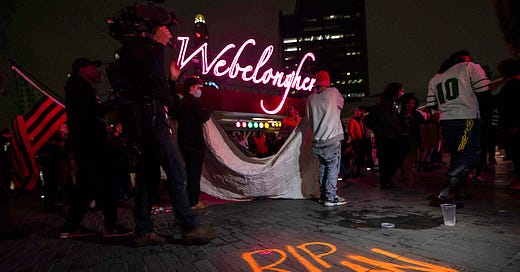





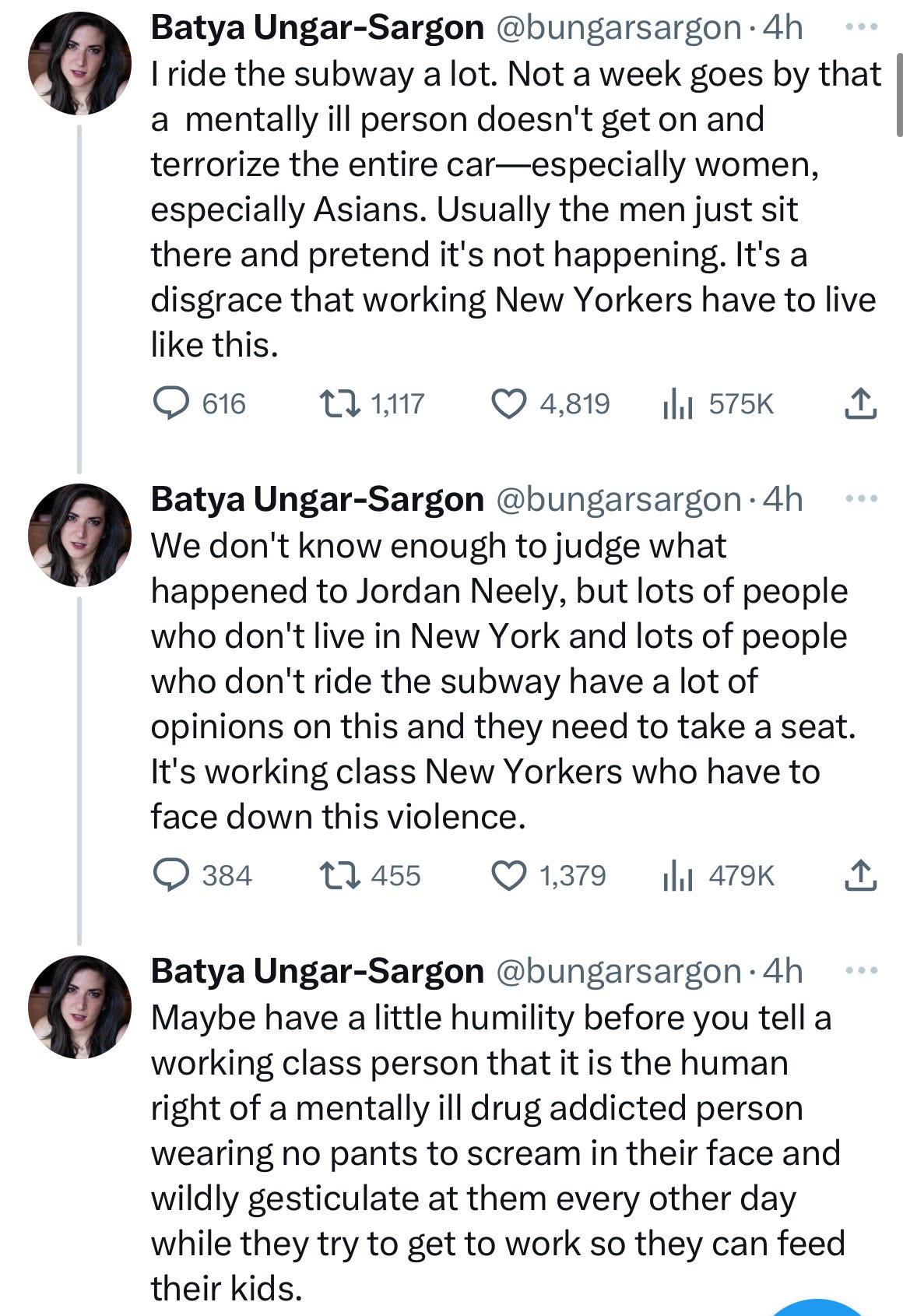





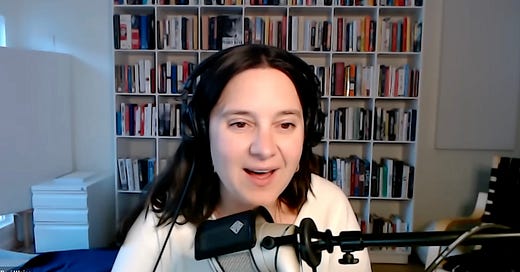

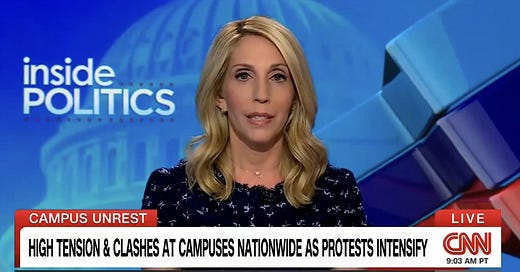

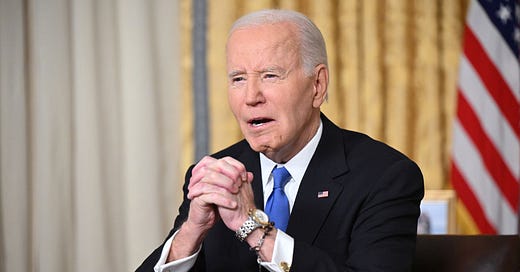


I suppose this crime against Jordan Neely's humanity is one of the "many cases where passengers assist other riders": the passengers who actively assisted Mr. Neely's anonymous executioner, along with those who passively bore witness to his murder.
Does no one question the mental health of "a straphanger taking matters into his own hands" when doing so ends in the death a human being? This particular straphanger is a former marine, and as such is well aware that a sustained chokehold is likely to be lethal. His identity is shielded from the public as if he were a member of the NYC police force. And why not? The former transit cop who's currently the mayor has his back.
Well said!